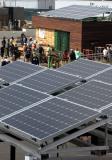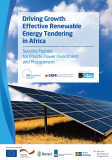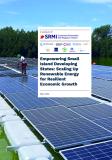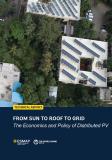Publications
The study's principal objective was to develop a practical method to measure the benefits of rural electrification. This method involved both formal and informal techniques of data collection; quantitative and qualitative methods of analysis; and concepts such as quality of life, effects on education, and other key components of social development.
Critical to the analysis is the separation of electricity from the many other factors that affect socioeconomic outcomes, such as income, level of education, and the returns to household investment in education. The major conclusion of this study is that the benefits of electricity are derived from a variety of sources.
The study also suggests future research and analytical needs. One key conclusion is that it is possible to measure benefits traditionally considered intangible in monetary terms. The benefit estimates appear substantial, even for low-income populations.




